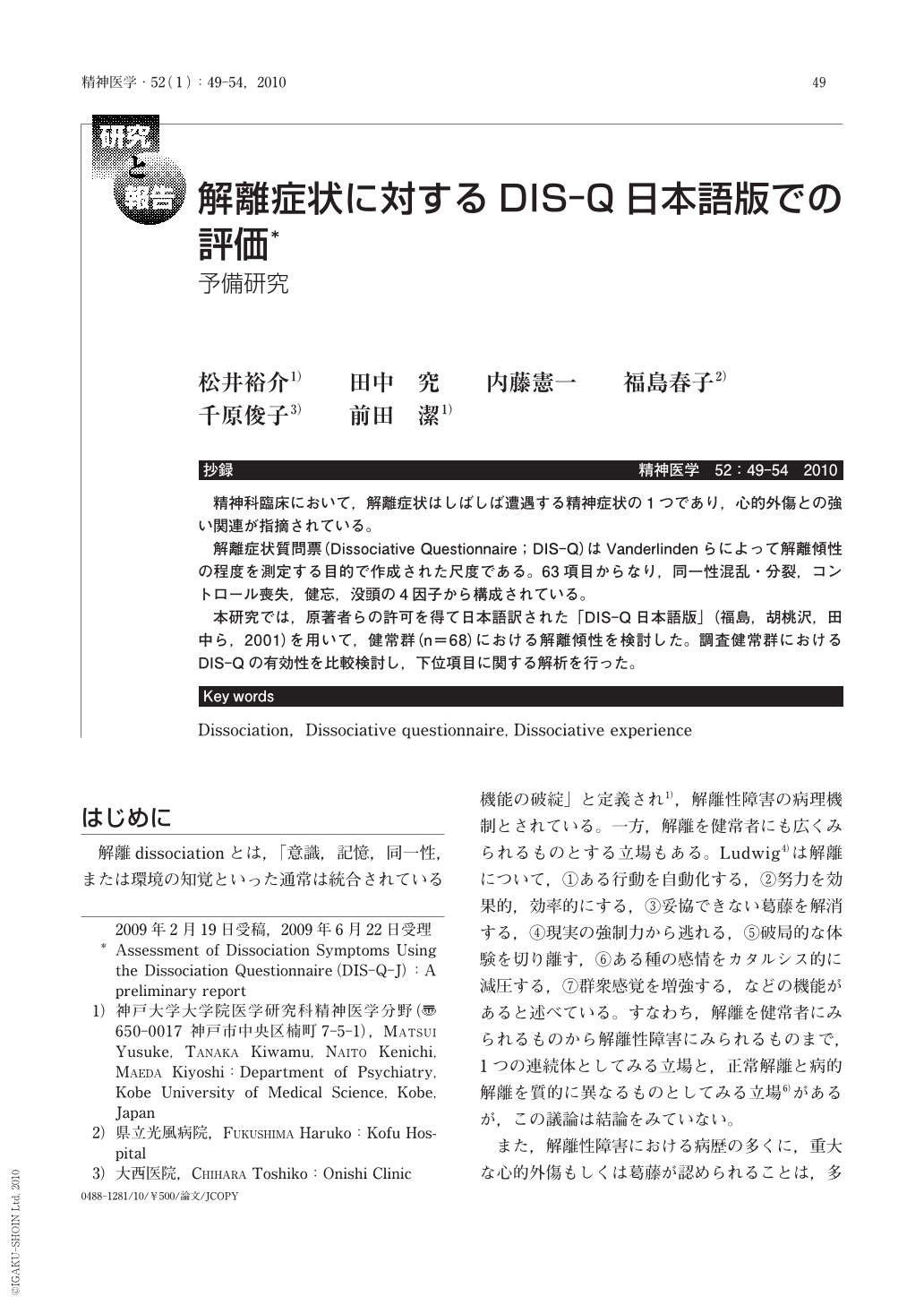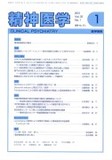Japanese
English
- 有料閲覧
- Abstract 文献概要
- 1ページ目 Look Inside
- 参考文献 Reference
- サイト内被引用 Cited by
抄録
精神科臨床において,解離症状はしばしば遭遇する精神症状の1つであり,心的外傷との強い関連が指摘されている。
解離症状質問票(Dissociative Questionnaire;DIS-Q)はVanderlindenらによって解離傾性の程度を測定する目的で作成された尺度である。63項目からなり,同一性混乱・分裂,コントロール喪失,健忘,没頭の4因子から構成されている。
本研究では,原著者らの許可を得て日本語訳された「DIS-Q日本語版」(福島,胡桃沢,田中ら,2001)を用いて,健常群(n=68)における解離傾性を検討した。調査健常群におけるDIS-Qの有効性を比較検討し,下位項目に関する解析を行った。
In a routine psychiatric clinical setting, clinicians often identify dissociation symptoms;therefore, evaluation of these symptoms is necessary. The dissociative experiences scale (DES) is widely used for this purpose, and the dissociation questionnaire (DIS-Q) has also been adopted in European countries.
DIS-Q is a self-reporting questionnaire that was developed by Vanderlinden et al. (Vanderlinden, 1993). DIS-Q has been translated and is being used in several European countries. Our group translated DIS-Q into Japanese with the permission of the author, Vanderlinden (Fukushima, et al., 2001). DIS-Q comprises 63 items, and these items assess 4 main factors:ability to identify confusion/fragmentation, 25 items;loss of behavioral control, 18 items;amnesia, 14 items;absorption, 6 items. Each item has 5 different alternatives, one of which can be selected as an answer.
In this investigation, 68 normal subjects were used to validate the items in the questionnaires and improve the coincidence index of test-retest reliability.

Copyright © 2010, Igaku-Shoin Ltd. All rights reserved.


